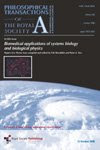Sustainability science: Exploiting the synergies
David Griggs, professor of sustainable development at Monash University in Melbourne, Australia, and the University of Warwick, UK. reviews in Nature, Economist Jeffrey D. Sachs book
The Age of Sustainable Development
Economic and Social factors are underlined:
ECONOMIC:
"Sustainable development was once considered a problem of developing countries, solvable through, and almost as a by-product of, economic growth. But no country has pulled itself out of poverty without fossil fuels, whose emissions drive climate change and pollution, or nitrogen-based fertilizers, which promote algal blooms. And richer countries have demonstrated the problems of uncontrolled development of land and resources, a factor in biodiversity loss. Sustainable development is crucial for all countries, so the SDGs will apply to every nation."
SOCIAL
"How to achieve a sustainable future? Education, Sachs notes, is a lynchpin. When girls stay in school for longer, fertility rates drop. Households with fewer children invest more in education, health and nutrition. He quotes Scottish economist Adam Smith, who wrote in The Wealth of Nations (1776) that because society benefits when people are educated, the costs should be “defrayed by the general contribution of the whole society”. That we have not achieved this more than two centuries later is a baffling and damning indictment." Blogger's note(Although the Scots are known for their legendary frugality many may take a book from the bicycle Dutch population. Granted Holland is a flat country.
SCIENTIFICALY MEASURED FACTS:
"Alongside the social challenges are climate change, ocean acidification and the current mass extinction of species — serious threats to humanity's capacity to thrive or even survive. For example, the concentration of carbon dioxide in the atmosphere is rising by more than 2 parts per million each year. Sachs concludes that no country is currently on a path to sustainable development."
HOLISTIC NATURE OF THESE PROBLEMS.
"What becomes clear is that understanding the links between these issues is essential. Along with development aims such as sanitation and health care for a growing and ageing population, there are environmental challenges such as mitigating climate change."
The full review and related links to NPG are well worth reading_Great background reading for COP21 participants and all concerned citizens!
- Related links in NPG (Nature Publishing Group
- Economics: Manufacture renewables to build energy security
- Policy: Bring sustainable energy to the developing world
- Eco-engineering: Living in a materials world
- Policy: Sustainable development goals for people and planet
- Ecodesign: The bottom line
- Sustainability through computing
- Related external links
- Jeffrey Sachs
- Sustainable Development UN Knowledge Platform
'via Blog this'










